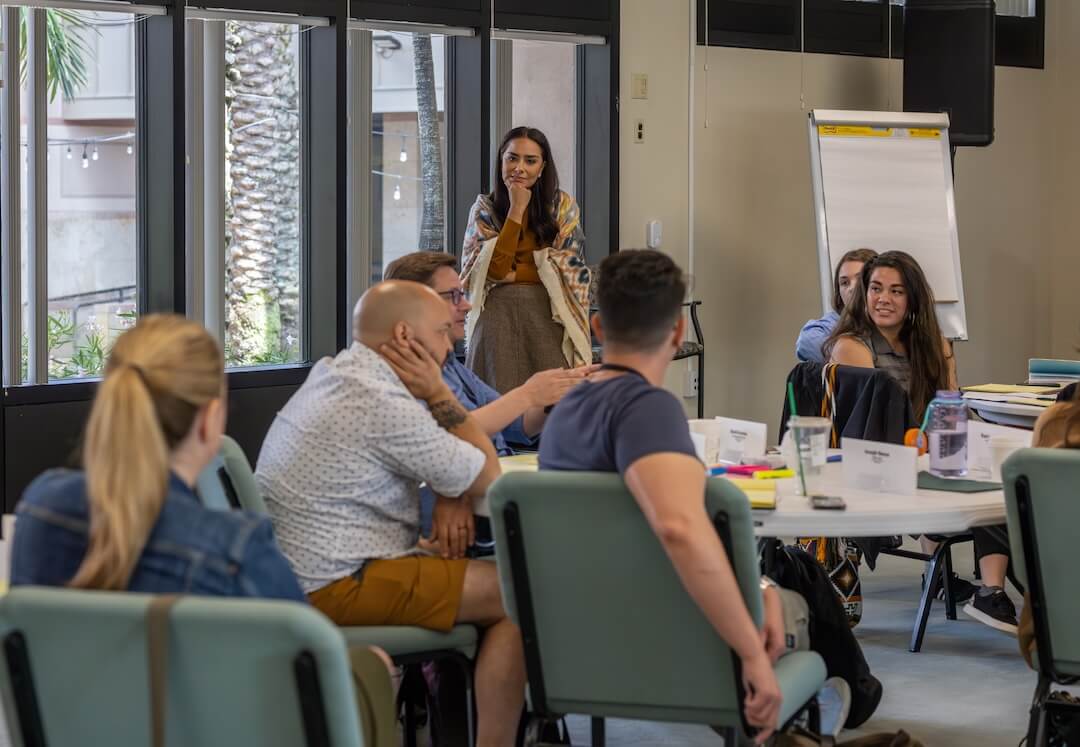Inspired by The New York Times‘ stories listing 100 things restaurant workers should never do, we wondered what 100 things journalists should never do.
We’ve been publishing on Twitter these 100 things journalists should and should not do. We hope you’ll tweet your own suggestions there, using the hashtag 100Things (#100things), or you can post them as comments to this article so we can all track the ideas.
The most retweeted of the 100 things will be part of the 100 “should”s and “should never”s we’ll publish below.
We’ve seen hundreds of tweets to #100things and received some e-mails and Facebook messages with them as well, including:
- Never bring your scanner on a date. It sends the wrong message. (@pabloconrad)
- Strive for context rather than information. Information is plentiful, context is scarce. (@rsm4lsu)
- Journalists should be skeptical, not cynical. (@jmestepa)
- Always make your last question “Is there anything else I should have asked?” (@jamessaft)
Here’s a selection of the most retweeted so far (not counting Poynter’s tweets):
- A journalist should never do: Wonder how to rewrite a press release before wondering how to fact-check it. (@JoshHalliday)
- A journalist should never do: confuse impartiality with decontexualised he said-she said reporting. (@paulbradshaw)
- A journalist should never be a friendly dog when reporting and then go snake at the keyboard. ABC. Always Be Congruent. (@carr2n)
Some familiar favorites
- Give voice to those who cannot make themselves heard. (@paulbradshaw)
- Afflict the comfortable and comfort the afflicted. (@lkorleski)
- Actually follow rule of “If your mother says she loves you, get a second source.” (@ddt tweets a variation on “If your mother says she loves you, check it out.”)
And of course, there are always going to be some…
- Don’t be a slave to any rule, including these 100. (Michael Booth)
- A journalist should never do: make lists of ‘never dos.’ (@dbanksy)
- Journalists should never take part in hokey social networking gimmicks. (@smartelle)
Here’s what Poynter has tweeted (some edited lightly for clarity)
- #1 Know the audience, what information they want/need & how they want to learn & share it. News is an activity, not a product.
- #2 Always be willing to let any answer — including one on deadline — completely change the story’s direction.
- #3 Journalists should be available. Let people know how to e-mail you, call, IM, DM or otherwise get in touch.
- #4 Journalists should be active community members. If you aren’t of the people, you aren’t by the people or for the people.
- #5 Get out of the office & out of the house. Don’t hide behind your job or computer. Rediscover the “local” in “hyperlocal.”
- #6 Remember your purpose. The best stories lead to well-informed people who make better decisions for a better democracy.
- #7 Be responsive. When a reader gets in touch, listen & follow up. Without an engaged audience, you’re talking to yourself.
- #8 Journalists should never stop learning. Even 15 minutes a day helps; learn a new skill or sharpen an old one.
- #9 Journalists should be comfortable with silence during interviews. You’ll hear & learn more if you’re not talking.
- #10 Journalists should never plead ignorance about the business of news, who pays, how & why. It’s not purist, it’s irresponsible.
- #11 Journalists should follow the facts where they lead, especially if that’s somewhere unexpected & uncomfortable.
- #12 Journalists should understand what @cshirky means by “this is what real revolutions are like.”
- #13 Never say you’re unbiased. You are biased. The best journalists mitigate their biases, they don’t deny them.
- #14 Journalists should know when stories are best told using words, photos, graphics, video, audio, data or a combination.
- #15 Never forget journalistic values when you’re using new tools.
- #16 Never let publishing be the end, make it another beginning. Engage w/audience before, during & after publication.
- #17 Practice the Platinum Rule w/sources, coworkers: “Treat others the way they want to be treated.” http://ow.ly/FNsj
- #18 Impress people with your openness. Learn from everyone. Knowledge is collaborative. Questions & answers are communal.
- #19 Understand why “good writing may be magical, but it’s not magic.” Use the process. Repeat. http://ow.ly/FNB1
- #s 20-22 of the #100things journalists should do come from @RTNDA_F interview w/NBC’s Bob Dotson. http://ow.ly/IRVX
- #20 “Look for stories people might miss, even standing next to you. Be curious about seemingly ordinary lives.” http://ow.ly/IS94
- #21 “Look for people who are invisible, who quietly change our lives, but don’t send press releases.” http://ow.ly/ISdA
- #22 “Look for ways to help your viewers feel something about the story” and the people affected by it. http://ow.ly/ISaI
- #23 From Jim Lehrer: Assume audience is smart, caring & good. Assume same about people on whom I report. http://ow.ly/Jija
These are the most retweeted of Poynter’s #100Things
- #13 Never say you’re unbiased. You are biased. The best journalists mitigate their biases, they don’t hide them.
- #11 Journalists should follow the facts where they lead, especially if that’s somewhere unexpected & uncomfortable.
- #9 Journalists should be comfortable with silence during interviews. You’ll hear & learn more if you’re not talking.





